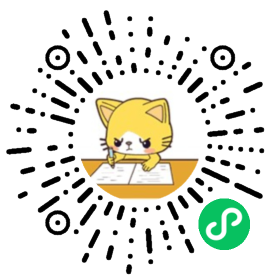【多选题】
培育和践行社会主义核心价值观,必须发扬伟大___。
A. 创造精神
B. 奋斗精神
C. 团结精神
D. 梦想精神
查看试卷,进入试卷练习

微信扫一扫,开始刷题

答案
ABCD
解析
暂无解析
相关试题
【多选题】
坚定文化自信,是事关国运兴衰,事关文化安全、事关民族精神独立性的大问题。坚定中国特色社会主义道路自信、理论自信、制度自信,说到底就是要坚定文化自信。讲文化自信,我们有充足的理由和充足底气,因为中国特色社会主义文化___。
A. 源自于博大精深的中华优秀传统文化
B. 承继于激昂向上的革命文化
C. 熔铸于生机勃勃的社会主义先进文化
D. 植根于中国特色社会主义伟大实践
【多选题】
人类社会发展的历史表明,对一个民族、一个国家来说,最持久、最深层次的力量是全社会共同认可的核心价值观。面对世界范围思想文化交流交融交锋形势下价值观较量的新态势,面对改革开放和发展社会主义市场经济条件下思想意识多元多样多变的新特点,积极培育和践行社会主义核心价值观,有利于___
A. 巩固马克思主义在意识形态领域的指导地位
B. 巩固全党全国人民团结奋斗的共同思想基础
C. 聚集实现中华民族伟大复兴中国梦的强大正能量
D. 促进人的全面发展和引领社会全面进步
【多选题】
加强社会建设,必须加快推进社会体制改革,主要有___
A. 努力办好人民满意的教育
B. 推动实现更高质量的就业,千方百计增加居民收入
C. 统筹推进城乡社会保障体系建设,提高人民健康水平
D. 加强和创新社会管理体制
【多选题】
建设社会主义和谐社会,要提高___
A. 提高保障和改善民生水平
B. 实施精准扶贫、精准脱贫策略
C. 加强和创新社会治理,形成共建共治共享的社会保障体系
D. 树立国家总体安全观
【判断题】
五大发展理念相互贯通、相互促进,是具有内在联系的集合体。创新注重的是解决发展动力问题,协调注重的是解决发展不平衡问题,绿色注重解决的是人与自然和谐的问题,开放注重的是解决发展内外联动的问题,共享注重的是解决社会公平正义问题。
A. 对
B. 错
【判断题】
建设社会主义文化强国,增强国家文化软实力,必须坚持社会主义先进文化前进方向,坚持中国特色社会主义文化发展道路,坚持以人民为中心的工作导向,进一步深化文化体制改革。
A. 对
B. 错
【判断题】
供给侧结构性改革就是从提高供给质量出发,用改革的办法推进结构性调整,矫正要素配置扭曲,扩大有效供给,提高供给结构对需求变化的适应性和灵活性,提高全要素生产率,更好满足广大人民群众的需要。其根本目的是提高生产力水平。
A. 对
B. 错
推荐试题
【判断题】
进入缺氧或有毒气体设备内作业时,应切实做好工艺处理工作,将受限空间吹扫、蒸煮、置换合格;并关闭阀门以便与所有与其相连且可能存在可燃可爆、有毒有害物料的设备管线等隔离
A. 对
B. 错
【判断题】
按照《环境保护管理规定》废水管理要求,依照清污分流、污污分流原则,各类废水按水质类型排放,分别处理;严禁将有毒有害物质、高浓度污染物直接排放,或采用稀释的方法排放
A. 对
B. 错
【单选题】
"1.☆☆柜员2019年2月4日(周一,工作日)收到客户提交的非税业务一般缴款书,缴款到期日为2019年2月2日,则该客户滞纳金预期天数应为()。___
A. 3天
B. 2天
C. 1天
D. 0天"
【单选题】
"2.☆☆☆柜员2019年2月8日(周五,工作日)收到客户提交的缴款书,非税业务一般缴款书,缴款到期日为2019年2月1日,则该客户滞纳金预期天数应为()。___
A. 7天
B. 6天
C. 5天
D. 0天"
【单选题】
"3.☆☆柜员2019年2月4日(周一,工作日)收到客户提交的缴款书,非税业务一般缴款书,缴款到期日为2019年2月1日,则该客户滞纳金预期天数应为()。___
A. 2天
B. 1天
C. 0天
D. 3天"
【单选题】
"5.☆市级预算单位结算账户纳入零余额账户管理当日,如下操作为错误的为:()。___
A. 联系客户将零余额账户余额清零
B. 账户归零设置
C. 将账户调整为免收利息
D. 免收电子回单箱费用"
【单选题】
"7.☆预算单位零余额账户从支付清算系统等结算渠道收到待入账的原支付业务部分资金退还时,开户行应通知预算单位申请(),用于资金入账。___
A. 正常支付指令
B. 退还指令
C. 公务卡还款指令
D. 批量指令"
【单选题】
"10.☆纳税人在税务机关完成纳税申报后,将银行端查询缴税凭证提交开户行。开户行根据查询缴税凭证序号通过TIPS查询其在税务机关的申报信息,并为纳税人办理信息申报和缴税,该业务称为()。___
A. 查询缴税
B. 申报查询缴税
C. 实时缴税
D. 税务端缴税"
【单选题】
"12.☆预算单位零余额账户从支付清算系统等结算渠道收到待入账的原支付业务部分资金退还时,开户行应通知预算单位申请(),用于资金入账。___
A. 正常支付指令
B. 退还指令
C. 公务卡还款指令
D. 批量指令"
【单选题】
"14.☆☆预算单位收到财政下发金额为负的额度用于调减单一账户额度时,开户行会生成的报表为()。___
A. 额度到账通知单
B. 额度更正通知书
C. 额度对账单
D. 额度明细对账单"
【单选题】
"16.☆纳税人在税务机关完成纳税申报后,将银行端查询缴税凭证提交开户行。开户行根据查询缴税凭证序号通过TIPS查询其在税务机关的申报信息,并为纳税人办理信息申报和缴税,该业务称为()。___
A. 税务端申报查询缴税
B. 银行端申报查询缴税
C. 税务端实时缴税
D. 银行端实时缴税"
【单选题】
"17.☆☆单一账户的主要特征不包括:()。___
A. 纳入单一账户单位清册
B. 办理支付业务需在下发额度范围内
C. 办理支付业务需匹配电子支付指令
D. 办理入账业务需匹配电子支付指令"
【单选题】
"18.☆☆柜面受理纸质TIPS三方协议签约时,如下说法错误的是:()。___
A. 柜面应审核协议抬头部分“乙方(纳税人)”信息与税务机关打印的“纳税人名称”是否一致
B. 经办柜员完成三方协议签约后,应在协议书各联加盖柜面业务专用章后交还客户。
C. 经办行完成三方协议签约后,要提示缴款人后续根据税务机关要求办理协议验证
D. 因打印机卡纸等情况导致“三方协议”客户账户信息打印失败的,应将客户信息打印在白纸上,裁减后贴在“三方协议“的银行打印框中,并以骑缝章形式加盖经办柜员及权限人名章。"
【单选题】
"19.☆☆上海地区纳税人通过TIPS系统以下哪种方式办理缴税的,需通过税务网自行下载“电子缴税付款凭证”()。___
A. 电子申报方式(税票号首位为6)
B. 窗口申报方式(税票号首位非6)
C. 银行端查询缴税
D. 税务端实时批扣"
【单选题】
"20.☆☆客户通过TIPS成功办理税务端申报查询缴款业务(转账方式)的前提条件不包括:()。___
A. 客户在我行开立人民币结算账户
B. 签订三方协议为验证成功状态
C. 扣税账户状态正常
D. 提供查询缴税凭证"
【单选题】
"21.☆☆对于税务机关单方撤销纳税人(个人客户)TIPS三方协议,纳税人至我行网点办理协议解约操作的,需提供的证件不包含()___
A. 客户情况说明
B. 存款人本人身份证
C. 原签约的三方协议
D. 税务机关的书面确认书"
【单选题】
"22.☆我行经收的收款资金应划缴至科目()。___
A. 223-001待报解预算收入
B. 223-099其他待结算财政款项
C. 261-002待划转款项
D. 261-099待划转银税及银关业务款项"
【单选题】
"23.☆客户至我行办理TIPS电子缴税业务三方协议签约(个人结算账户)时,需携带的资料不包括()___
A. 本人身份证件
B. 代理人身份证件
C. 纸质三方协议税务联
D. 纸质三方协议客户联"
【单选题】
"24.☆以下哪种业务在办理前不需要客户与我行办理相关签约业务()___
A. TIPS税务端查询缴款业务
B. 海关电子缴款业务
C. 柜面税款经收业务
D. 工资代发业务"
【单选题】
"25.☆纳税人(单位)与我行签订TIPS三方协议时,审核要素不包括()。___
A. 客户填写的“三方协议”要素是否齐全、正确
B. 缴款账户是否为纳税人在本行开立的账户
C. 缴税账户为单位结算账户的,存款人应在协议落款部分加盖公章及法人章
D. 如非法人本人办理,是否提供授权书"
【单选题】
"26.☆☆纳税人与我行签订TIPS三方协议时,如纳税人为个人工商户,缴款账户为个人结算账户的,审核要素不包括()。___
A. 缴税账户信息、证件信息与我行系统信息是否一致
B. 核验身份证件的真实性、合规性
C. 协议落款部分乙方“自然人签字处”是否本人签字
D. 协议落款部分乙方“自然人签字处”签字信息与抬头“乙方(纳税人)”是否一致。"
【单选题】
"28.☆☆营业机构于2019年2月4日(周一,工作日)收到客户提交的税收缴款书,缴款到期日为(),则应退回客户。___
A. 43497
B. 43498
C. 43499
D. 43500"

